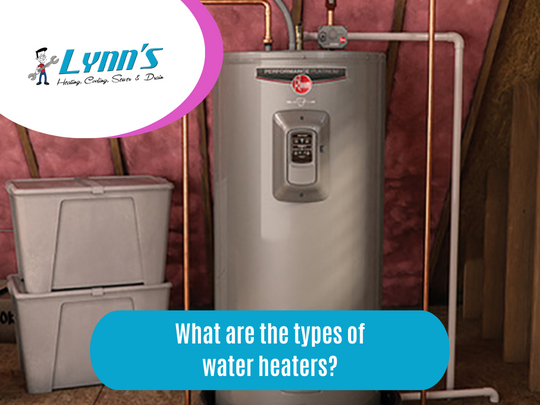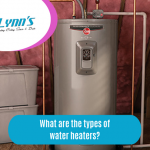What are the types of water heaters?
Did you know that there's more to water heaters than just the traditional tank model? That's right, there are multiple types of water heaters to consider, and each comes with its own set of advantages and disadvantages.
If you're in the market for a new water heater, you might wonder which type is best for you. That's where we come in.
Let's explore the different types of water heaters and their features to help you make an informed decision.
Types of water heaters
Two primary categories of water heaters are available: those with a container and those without. These explanations will assist you in selecting the one that is most appropriate for your needs.
With tank
Opting for a water heater that comes with a tank can be a cost-effective solution that can be installed quickly. Within a few hours of installation, it will be ready to use. Make sure to reserve a dedicated space in your home for the tank, which usually holds hot water between 20 to 80 gallons. Remember that these tanks are susceptible to damage in severe weather conditions.
Despite these drawbacks, owning a traditional water heater with a tank pays off during power outages since gas-powered models can still operate. In case your home runs on electricity or propane, you may want to explore models that utilize these power sources. If you keep up with the maintenance, these traditional water heaters can last anywhere between 10 to 15 years.
Tankless
Despite their higher cost, tankless water heaters are highly efficient and durable, and the initial investment may lead to long-term savings. Although they typically take up less space than traditional water heaters, installing one may require upgrading your home's electrical system or installing a dedicated gas line.
One of the major benefits of a tankless system is the ability to produce hot water on demand, as long as you aren't running too many faucets at once. With proper maintenance, a tankless water heater can last for 20 years or more.
Is one better than the other?
Whether you choose a water heater with or without a tank, there are a few things to consider. Ask yourself some of the following questions:
- What’s my budget?
- What power source am I using?
- What can my house support?
To start with, it's important to consider both the initial and ongoing costs when deciding how much to spend. While a tankless system will require a higher upfront investment, it's a better long-term value since it has a longer lifespan.
Next, think about the type of energy source that powers your home's heating systems, whether it's gas, electricity, or propane. This will have a significant impact on the amount of energy consumed by the water heater and, therefore, the monthly costs associated with it.
Finally, keep in mind that water heaters can only handle a certain amount of usage at one time. If your home can't support a tankless system without additional features like a dedicated gas line or upgraded electrical system, then it may be best to choose a traditional system with a tank.
Ultimately, the decision comes down to your specific needs and budget. By considering the pros and cons of each type of water heater, you'll be able to make an informed and smart decision that works best for you.
If something goes wrong with your water heater, you need fast and professional service to get your home and daily routine back in order. Whether you need hot water heater repairs, 24/7 emergency plumbing services, or a new hot water tank, the experts at Lynn's have the experience to get the job done and deliver hot water to your home as quickly as possible.
To learn more about water heaters, follow Lynn's HVAC Winnipeg: Plumbing Heating & Cooling on social media and check out their blog at https://lynnswinnipeg.ca/blog/, where we talk about What are the different types of water heaters and How long does it take to replace a hot water heater?.































